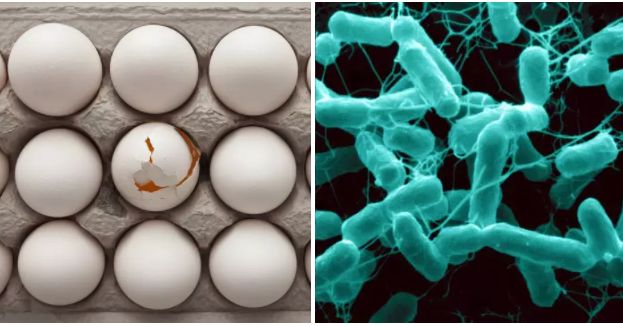
January 190 Comments
Eggs Recalled Due to Salmonella Contamination: What You Need to Know
The FDA and CDC have identified a U.S. farm. It generated millions of recalled eggs. Salmonella, a dangerous bacterium that may cause food poisoning, has reportedly been discovered to be present in the eggs.

Eggs Recalled Due to Salmonella Contamination: What You Need to Know
Consumers and food safety experts in the US have been paying close attention to a major egg recall in recent weeks. The recall, due to possible Salmonella, has raised food safety fears. It prompted quick action from the public and health authorities.
The Recall: What Happened?
The FDA and CDC have identified a U.S. farm.It generated millions of recalled eggs. Salmonella, a dangerous bacterium that may cause food poisoning, has reportedly been discovered to be present in the eggs.Symptoms of salmonella infections include fever, diarrhea, vomiting, nausea, and abdominal pain. Hospitalization may result in more severe instances, particularly in susceptible groups like small children, the elderly, and people with compromised immune systems.
Why is this a Big Concern?
A common component in many American homes, eggs can be found in anything from breakfast to baking ingredients. The magnitude of this recall emphasizes how crucial food safety regulations are. The eggs were delivered by the recall farm to grocery shops and restaurants in multiple locations throughout the US.Customers are being advised to inspect their egg cartons for any product codes or "best by" dates that correspond to the recalled batches of eggs, which were marketed under a number of brand names. Both shell eggs and eggs that have been processed into other goods, including egg salads or sandwiches, are impacted by the recall.
What Should You Do If You Have Recalled Eggs?
If you believe you’ve purchased eggs from the affected lot, here’s what you should do:
Check for the Product Code: The carton contains the exact product codes that are impacted. Stop using eggs right away if they are from a recalled batch.
Return or Dispose of the Eggs: Customers should return or safely dispose of the eggs. Even if the eggs seem normal, be careful not to eat them.
Monitor for Symptoms: If you've eaten the recalled eggs, see a doctor for a fever, diarrhea, or stomach cramps. Serious salmonella infections necessitate medical attention.
How Can You Prevent Salmonella in Eggs?
When handling eggs, take care. Salmonella can be in them, even if they seem fresh and undamaged.
Cook Eggs Thoroughly: Eggs should always be cooked until the white and yolk are set. Steer clear of eating raw or undercooked eggs, particularly if you are at high risk.
Practice Proper Hygiene: After handling raw eggs, wash your hands, kitchenware, and surfaces.
Refrigerate Eggs Promptly: To inhibit the growth of microorganisms, keep eggs refrigerated.
Looking Ahead: The Need for Enhanced Food Safety
This recent recall reminds us of the importance of food safety. The FDA, CDC, and other agencies watch for foodborne illness outbreaks. They work with food manufacturers to improve safety. Consumers must, however, be cautious and take safety measures in their kitchens.We urge readers to stay informed on the recall as details emerge. For the latest info, check reliable news sources and food safety sites.Meanwhile, it is always preferable to be safe than sorry if you are worried about the eggs in your kitchen. Stay safe and protect your loved ones from foodborne infections.
- Consumer Safety
- Public Health Alert
- Health & Safety
- Egg Safety Tips
- Food Recalls USA
- Egg Recall 2025
- Food Safety Standards

Comments